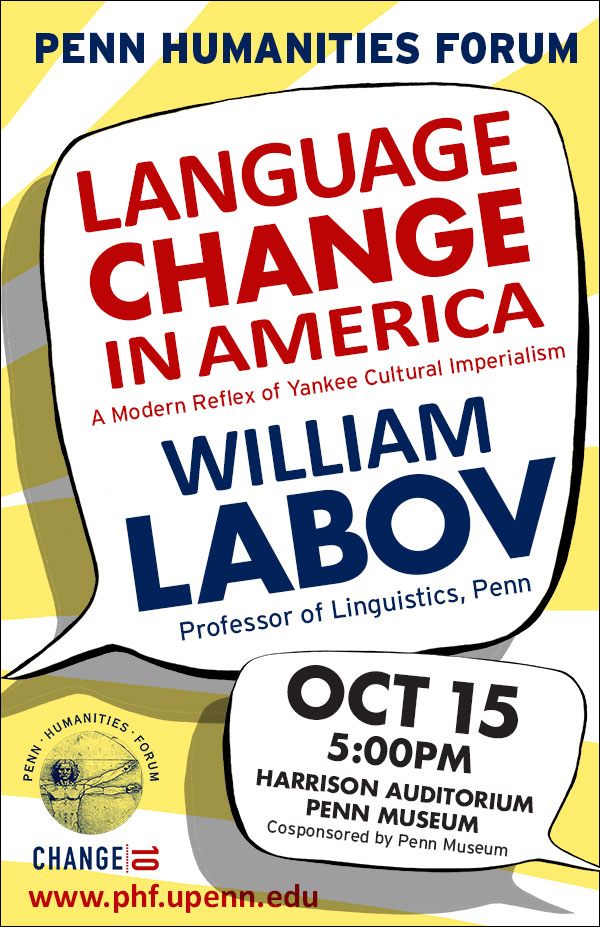It was widely expected that the dialects of American English would converge and ultimately disappear as the influence of the mass media grew. But just the reverse has happened: the recently completed Atlas of North American English shows an increasing diversity in regional dialects today. This lecture describes changes in the speech of an area roughly corresponding to the Blue States in politics. The “Northern Cities Shift,” surprisingly, is an effect of nineteenth-century Yankee norms of education, industry, and propriety.
William Labov, a pioneer in linguistics, has focused his distinguished career on understanding language not as a static structure but as a dynamic social system, one that is continuously moving, changing, interacting, and working. Language, to Labov, is a form of social behavior, which humans use in a social context, communicating their needs, ideals, and emotions to one another. He is the author of major studies of the social stratification of English in New York City and Philadelphia, and surveys of sound changes underway throughout the English speaking world. In The Atlas of North American English: Phonetics, Phonology, and Sound Change (with Sharon Ash and Charles Boberg, Berlin: Mouton/de Gruyter, 2006), he has produced an important work that remaps and redefines the regional dialects of American English.
Professor of Linguistics and Director, Linguistics Laboratory
University of Pennsylvania



